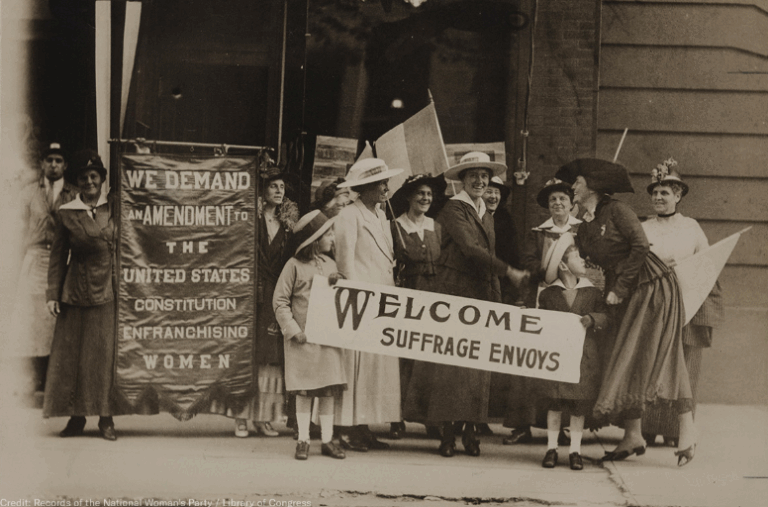On this day in 1969, the first humans hurled through space to land on the moon. They didn’t know if they would return to Earth.
Talking Big Ideas.
“Fate has ordained that the men
who went to the Moon to explore in peace
will stay on the Moon to rest in peace.”
~ Richard Nixon
The first people to walk on the moon would be left there to die.
That was a serious concern in 1969. When NASA sent Apollo 11 into orbit 55 years ago this week, the space program was confident it could land its men on the moon, but getting them back to Earth was an altogether more harrowing challenge.
NASA feared Buzz Aldrin and Neil Armstrong would be unable to return to orbit – the most complicated and challenging part of the mission – and would be left stranded on the desolate lunar surface. “We would have to close down communication” . . . as it “would not do for the world watching on television to see the men slowly starve to death or commit suicide.”
President Nixon was ready to call the widows-to-be to offer his condolences.
And yet, while Buzz Aldrin clearly knew the risks he faced, the world watched him dance along on the moon, singing in a playful tone: “Hippity hoppity, hippity hoppity, hippity hopping, over hill and dale!”
You gotta love Buzz Aldrin! He survived, of course, and more than half a century later remains a national treasure – just as inspiring and delightful as ever. I encourage you to follow Buzz on Twitter, both to learn about science and history, and to uplift your spirits.
Decades after their historic moon landing, Buzz and his fellow Apollo 11 astronauts appeared on the TV show Meet the Press. The host read them a short speech Richard Nixon was prepared to deliver in the event the astronauts were left stranded on the moon. Listening to “their would-be eulogy, they . . . were visibly moved.”
The eulogy, written by iconic speech writer William Safire, takes just a minute to read. I’ve included the full transcript below.
Safire was masterful in applying figures of rhetoric – timeless techniques with funny names developed by the ancient Greeks, and built upon by the Romans, to make words and phrases come alive and stick in our memory.
I’ll highlight three with examples.
ANAPHORA
[an-AFF-or-uh] The repetition of a word or phrase at the beginning of successive clauses. According to Mark Forsyth in his book The Elements of Eloquence, anaphora “is the king of rhetorical figures” and yet “it’s so preposterously easy to do.”
Consider Arnold Schwarzenegger in his viral 2022 speech to the Russians:
Your lives.
Your limbs.
Your futures have been sacrificed for this senseless war condemned by the entire world.
Here’s Churchill on the invasion of Britain:
We shall not flag nor fail.
We shall go on to the end.
We shall fight in France and on the seas and oceans;
The Apollo 11 eulogy:
They will be mourned by their families and friends;
they will be mourned by their nation;
they will be mourned by the people of the world;
they will be mourned by a Mother Earth that dared send two of her sons into the unknown.
ANTITHESIS
[an-TITH-uh-sis] The juxtaposition of contrasting ideas in balanced phrases or clauses. It’s quite simple to spot when you see it. You recognize antithesis immediately from the Bible (and the Byrds):
A time to be born, a time to die.
A time to plant, a time to reap.
A time to kill, a time to heal.
This passage from the Bible is particularly memorable as it also includes anaphora. Charles Dickens blended antithesis with anaphora as well:
It was the best of times, it was the worst of times.
It was the age of wisdom, it was the age of foolishness.
It was the epoch of belief, it was the epoch of incredulity.
Oscar Wilde used antithesis when he contrasted the well-bred with the wise: “The well-bred contradict other people. The wise contradict themselves.” In the Apollo 11 eulogy, Safire contrasted exploration with sacrifice:
In their exploration, they stirred the people of the world to feel as one;
in their sacrifice, they bind more tightly the brotherhood of man.
Safire also used antithesis to contrast ancient with modern:
In ancient days, men looked at stars and saw their heroes in the constellations. In modern times, we do much the same, but our heroes are epic men of flesh and blood.
EPIZEUXIS
[ep-ee-ZOOX-is] The repetition of a word or phrase for emphasis. Often in the same sentence.
Winston Churchill:
Never give in!
Never give in!
Never. Never! Never!!
The first rule of Fight Club is:
you do not talk about Fight Club.
The second rule of Fight Club is:
YOU DO NOT TALK ABOUT FIGHT CLUB!
Apollo 11 eulogy:
Fate has ordained that the men
who went to the Moon to explore in peace
will stay on the Moon to rest in peace.
This passage also uses antithesis to contrast explore with rest.
Safire took inspiration from a never-delivered speech he discovered that President Eisenhower wrote in the event D-Day failed. He also drew from a famous poem, The Soldier by Rupert Brooke, and from his knowledge of English prose and rhetoric.
I encourage you to pick up a copy of Safire’s book Lend Me Your Ears, where he analyzes many of the best speeches in history. While you’re at it, get The Elements of Eloquence, where Mark Forsyth brings to life 39 figures of rhetoric in an entertaining way.
Both belong on your bookshelf for quick reference and enjoyment.
***
The Undelivered Eulogy for Apollo 11:
In Event of Moon Disaster
Fate has ordained that the men who went to the Moon to explore in peace will stay on the Moon to rest in peace.
These brave men, Neil Armstrong and Edwin Aldrin, know that there is no hope for their recovery. But they also know that there is hope for mankind in their sacrifice.
These two men are laying down their lives in mankind’s most noble goal: the search for truth and understanding.
They will be mourned by their families and friends; they will be mourned by their nation; they will be mourned by the people of the world; they will be mourned by a Mother Earth that dared send two of her sons into the unknown.
In their exploration, they stirred the people of the world to feel as one; in their sacrifice, they bind more tightly the brotherhood of man.
In ancient days, men looked at stars and saw their heroes in the constellations. In modern times, we do much the same, but our heroes are epic men of flesh and blood.
Others will follow, and surely find their way home. Man’s search will not be denied. But these men were the first, and they will remain the foremost in our hearts.
For every human being who looks up at the Moon in the nights to come will know that there is some corner of another world that is forever mankind.




